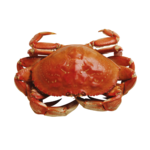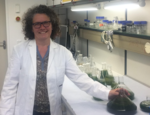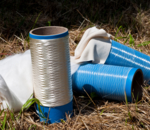-
-
-
Paper technology - 10/03/2021
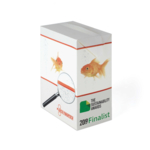
Plastic is indispensable: it is cheap and practical and found in many disposable products such as drinking straws, disposable tableware or even packaging like bonded beverage cartons or bags – and it has a disastrous effect on the environment. The start-up company Plafco Fibertech Oy has developed a sustainable plastic substitute made of paper that could replace many disposable plastic products in the future.
https://www.biooekonomie-bw.de/en/articles/news/plafco-sustainable-plastic-substitute-made-paper
-
-
-
Paper production from plant fibres - 20/01/2021

Many consumers don't care about exactly how their paper packaging is made and what it is made of as long as it is "eco". But even producing recycled paper, trees need to be felled. An alternative could be paper made from cup plant. Together with partners, a company called Silphie Paper has developed concept for obtaining fibres for a new type of grass paper, while also producing heat, energy and nutrients for natural fertilisers.
https://www.biooekonomie-bw.de/en/articles/news/one-cycle-ecopaper-energy-and-fertiliser-made-silphium-perfoliatum
-
-
Press release - 04/01/2021
As healthy and tasty as mushrooms might be, they are good for much more than just the dinner plate. The Fraunhofer Institute for Environmental, Safety and Energy Technology UMSICHT has now teamed up with the Fraunhofer Institute for Building Physics IBP to investigate the use of fungus-based materials for the fabrication of eco-friendly sound absorbers.
https://www.biooekonomie-bw.de/en/articles/pm/Fungus-as-a-sound-absorber
-
Development of biogenic packaging - 16/11/2020

Modern packaging often boils down to a tick list of biogenic origin and/or biodegradability. But comprehensive sustainable packaging concepts need more than just that. Perishable foods, for example, require special barrier properties. The Albstadt-Sigmaringen University of Applied Sciences is researching packaging concepts for their sustainability.
https://www.biooekonomie-bw.de/en/articles/news/sustainable-packaging-devil-detail
-
Dossier - 09/11/2020

What will the packaging of the future look like, and what will be required of it? Can packaging be biobased, recyclable, sustainable and economic? In Baden-Württemberg, there are various approaches to developing packaging with the above properties from various sources including agricultural residual and side streams as well as municipal waste.
https://www.biooekonomie-bw.de/en/articles/dossiers/packaging-future
-
-
Phosphorus recovery from sewage sludge - 21/10/2020
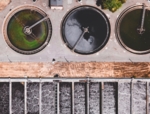
Biotechnology for the bioeconomy: in something known as the P-bac process, sulphur bacteria extract phosphorus from sewage sludge ash. Phosphorus is one of the key building blocks of life and an essential nutrient for plant growth. When there is not enough phosphorus in the soil, farmers apply it via organic or mineral fertilisers.
https://www.biooekonomie-bw.de/en/articles/news/bacteria-help-recycle-phosphorus
-
Qualitative soil fertiliser - 10/07/2020
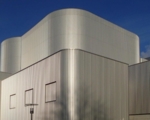
Recycled material instead of waste: wood ash is good for soil and plants - if the quality is right. The German Federal Quality Association for Food Ash ensures reliable wood ash standards with its certifications. The RAL-Dünger label for fertilisers provides the necessary certification for natural wood ashes to be used in the circular economy.
https://www.biooekonomie-bw.de/en/articles/news/how-natural-cycles-can-be-closed-wood-ash
-
rezemo GmbH - 26/06/2020
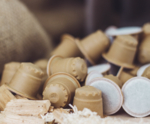
In Germany alone, around three billion disposable coffee capsules made of aluminium and plastic are sold every year. This creates a gigantic waste problem, as only a small proportion of the capsules can be recycled. Fully compostable wooden coffee capsules might be a solution to this problem. The capsules have been developed by a start-up company called rezemo, which also has other biobased packaging solutions in the pipeline.
https://www.biooekonomie-bw.de/en/articles/news/coffee-capsules-wood-instead-aluminium
-
Biosensors - 09/04/2020
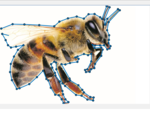
Sensor networks are one of the keys to achieving digitalisation of the bioeconomy. Sensor networks are on the way to becoming important analysis and control instruments for energy-efficient and sustainable material cycles. Dieter Hertweck, Professor of Business Information Systems at Reutlingen University of Applied Sciences, shows what is already possible in digital agriculture and waste recycling and what is feasible for the future.
https://www.biooekonomie-bw.de/en/articles/news/Sensors-for-the-bioeconomy
-
Polysecure GmbH - 16/01/2020
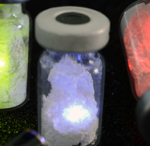
Plastics are harmful to the climate and human health both during manufacture and combustion and they also clutter our planet with garbage. Recycling is therefore a key issue, but it is not efficient. Polysecure has developed a process for permanently marking individual plastics that enables them to be separated efficiently and returned to a circular economy. This would counteract the vast amount of (micro) plastics and reduce CO₂ emissions.
https://www.biooekonomie-bw.de/en/articles/recycling-of-the-future-marked-plastic-as-a-circular-product
-
Producing valuable new products from waste materials - 07/01/2020
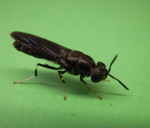
Eco-friendly and responsibly manufactured products are more in demand than ever before. Specific research is being carried out into materials and applications for a wide variety of uses. The Fraunhofer Institute for Interfacial Engineering and Biotechnology IGB is working with Hermetia Baruth GmbH on the vision of an insect biofactory that uses waste materials to produce a wide range of products such as biosurfactants, animal feed or foils.
https://www.biooekonomie-bw.de/en/articles/news/A-vision-insect-biorefineries-as-components-of-a-sustainable-bioeconomy
-
Article - 21/10/2019
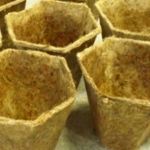
Plastic plant pots are not good for the environment; strictly speaking, they should not even be disposed of in recycling bins. Alternatives such as coconut fibre pots are compostable, but not pollutant-free and not "bio" at all. The Karlsruhe-based company Fiber Engineering has developed a truly ecofriendly way to grow plants: pots made of hemp or grass, which are preserved with biological components and decompose completely within a…
https://www.biooekonomie-bw.de/en/articles/news/pflanztoepfe-aus-naturfasern-bio-ohne-wenn-und-aber
-
-
Dossier - 15/04/2019
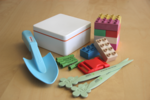
Plastic waste takes years to decompose and pollutes the environment. Nevertheless, plastics are an indispensable part of everyday life. It is therefore all the more important to find a meaningful alternative that is sustainable, environmentally friendly and has better properties and more functionality than conventional plastics. In addition, such an alternative should not be dependent in any way on fossil resources.
https://www.biooekonomie-bw.de/en/articles/dossiers/the-alternative-bioplastics
-
Article - 27/03/2019
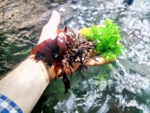
Algae are frugal organisms. They require only light, water, minerals and carbon dioxide to be able to produce biomass. These properties will now be exploited economically in a two-year research project. Dr. Stefan Sebök from the University of Hamburg plans to study the holistic utilisation of degradation products of a biogas plant in Wallerstädten by linking them to land-based algae cultivation.
https://www.biooekonomie-bw.de/en/articles/news/residues-from-biogas-plants-as-feed-for-algae
-
Dossier - 04/03/2019
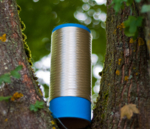
Baden-Württemberg is known for innovation in textiles and for playing a decisive role in the development of sustainable textiles for the future both in the clothing and the booming technical textile sectors. Companies and research institutes are focused on making the entire textile value chain from raw materials, production and useful life to disposal more sustainable than ever before.
https://www.biooekonomie-bw.de/en/articles/dossiers/sustainable-textiles
-
-
Website address: https://www.biooekonomie-bw.de/en/search


